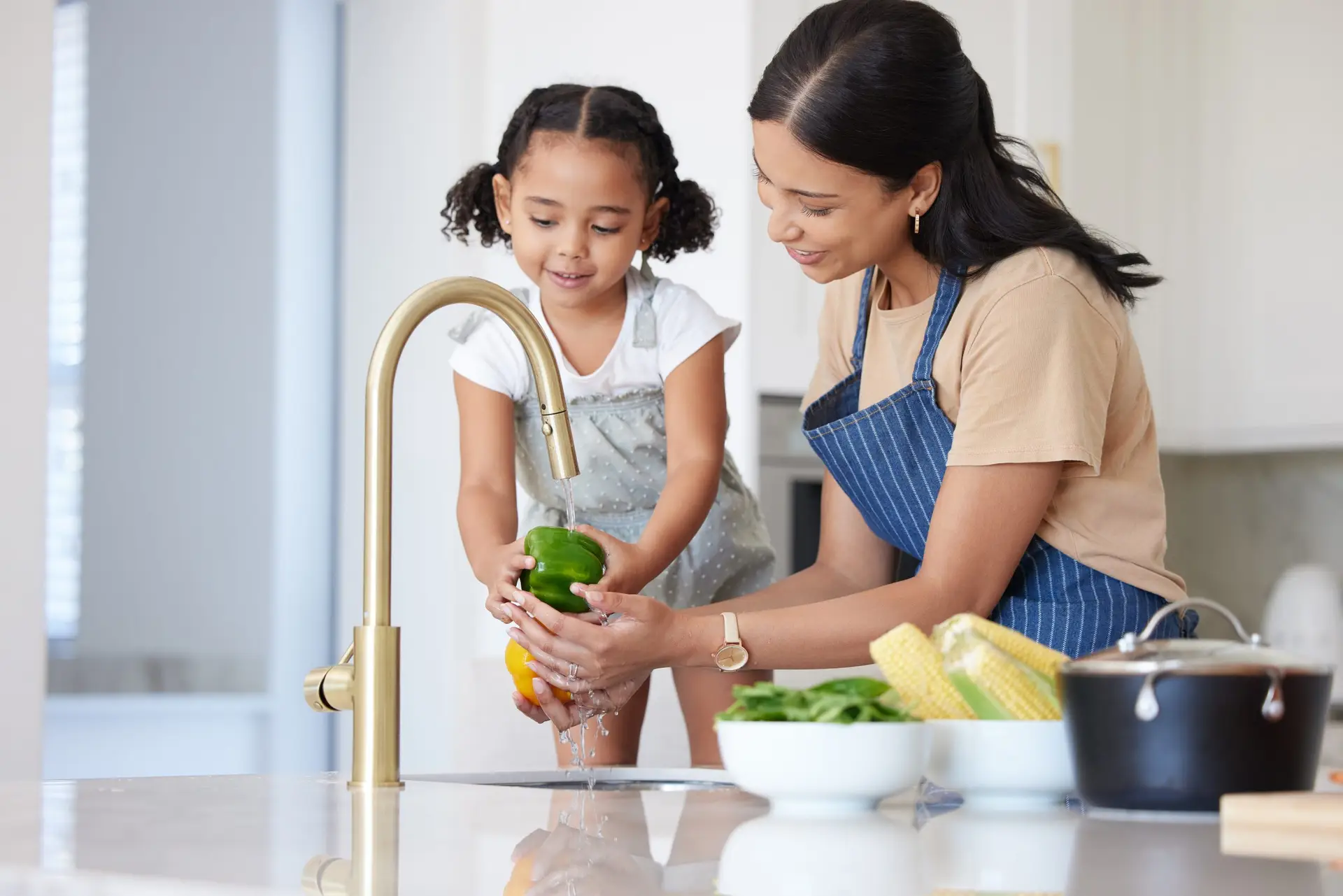When I was in high school, I had the opportunity to try an old-fashioned washing machine. That experience taught me the literal meaning of the phrase “through the wringer.” Who knew that the expression would perfectly define what it feels like, at times, to navigate being a parent. Are we making the right calls, teaching the right skills, striking the right balance? That’s especially true when it comes to figuring out how to teach a child responsibility.
On one hand, we want to raise our kids to be responsible adults. On the other hand, teaching responsibility takes work. If you’re not sure about the importance of teaching your child responsibility, consider what the experts say about teaching responsibility to our kids.
Why is it important to teach your child responsibility?
According to the Center for Parenting Education, “Being responsible is a key to children’s success both in school and in the larger world when they grow up.” As they explain, being responsible includes characteristics like being dependable, keeping one’s word, meeting commitments, working hard, being accountable for outcomes, and generally contributing to family, community, and society.
Clearly, these are attributes we want to instill in our kids—even if it takes effort. But how do we do it successfully? How do we teach responsibility to a young child? And how do we teach responsibility to a teenager?
How to teach a child responsibility
The Child Development Institute offers a variety of suggestions you may want to consider when teaching your child responsibility. They include:
- Treat your child with respect and care. Remember that our kids are new at practicing responsibility. So, give them grace and understanding as they grow into their responsibilities.
- Reinforce the positive. Kids repeat behavior that earns them praise. Even two-year-olds are more likely to pick up toys if they are praised for their efforts. And the practice works equally well with teens. Everyone likes to hear a good word.
- Share household tasks and chores. These assignments should be age appropriate, but even young children can help clean up clutter, empty trash cans, or set the table. While kids should still have plenty of opportunities to be kids, they can still learn the value of contributing to the family and household in meaningful ways. Being responsible around the house gives kids a feeling of ownership not only in the home but also in family relationships.
- Teach money management skills. It’s surprising how many adults haven’t mastered this basic skill. Encourage your kids to make money. And help them learn to be responsible with money they make.
- Allow for natural consequences. We live in a society that praises perfection, sending our kids the message that everything needs to work out. But kids can learn as much, if not more, from their mistakes. It’s ok to let kids to fail. As long as the lessons they learn don’t have lasting negative consequences (we are the parents, after all, and have a responsibility to teach and protect them), they will learn more about responsibility by suffering (or enjoying) the natural consequences of their actions.
- Be specific with expectations. When you give your child a new responsibility, give clear directions, explain the expectations concisely, and allow for messy beginnings. It may be helpful to demonstrate the task personally or help the first few times to reinforce what you’re asking.
- Don’t let your child off the hook. This one can be tricky. We love our kids, and we want to clear their path. But that love can backfire if we want to teach them to be responsible teens and adults. Did they misbehave at school? Fall behind on some homework or fail to study for a big test? Don’t bail them out. Encourage them to find solutions and own their behavior. Life will not let them off the hook so you shouldn’t either. The best form of love is helping them learn that lesson in the safety of your company.
- Give your child space and freedom. Avoid the call of the helicopter parent. Instead, allow your kids the chance to learn responsibility. Let them make decisions, explore their creativity, and take ownership of their own responsibility.
How to teach responsibility to a teenager
The easiest way to teach responsibility to a teenager is to start way before they reach their teenage years. James Lehman, MSW, suggests teaching your kids about accountability when they are very young. “As early as you can in your child’s life, start having them take responsibility for the things with which they’re involved.”
But don’t worry if you’ve missed that opportunity. It’s never too late to teach and reinforce this vital life skill. Lehman suggests a couple tactics that can help kids learn responsibility at any age.
- Talk about responsibility often. Use the actual words. Say things like “Way to follow through on your responsibility” or “That was your responsibility, and you did a great job!” You can also point out things like “I’m rewarding you because you met your responsibility” or “thank you for making a responsible decision.” As Lehman points out, “The more you identify it, the more conscious your child becomes of it. …The earlier you connect the reward to the responsibility, the more clearly that becomes associated in your child’s mind.”
- Have candid conversations with your teens about responsibility. Tell your teens that things are going to change (in a positive way). Discuss with them why being responsible is important to successful adulthood—and then explain what that means. Help them understand that being responsible is essential for good relationships, job security, peace of mind, and so much more. Come up with a game plan together of what responsibilities will be expected, what consequences will follow, and how meeting those responsibilities will look. And then stick to the plan. It might take some work, but the payoff is worth it.
- Teach by example. Teens read parents like open books. So, the best way to help your teens learn responsibility is to be responsible yourself. Practice all the suggestions above, including good money management skills, following through on commitments, working hard (even when the task is unpleasant), and generally contributing to your family, community, and society. Your kids want to be like you. So, give them a good role model to follow.
Responsible kids don’t just appear. They develop over time under the stewardship of careful parents who teach them how to be responsible one day at a time. But even though the responsibility (see what I did there?) might seem daunting to you, teaching responsibility to your kids is worth every effort.


